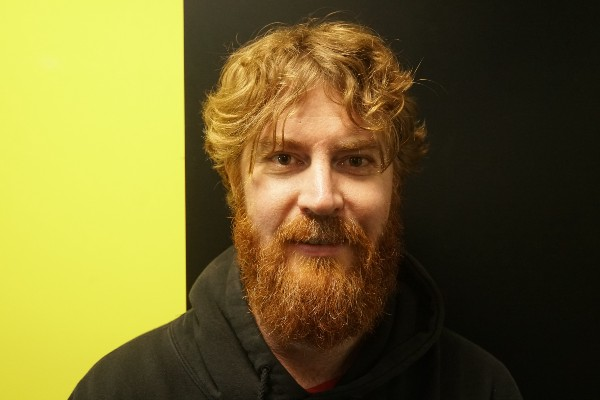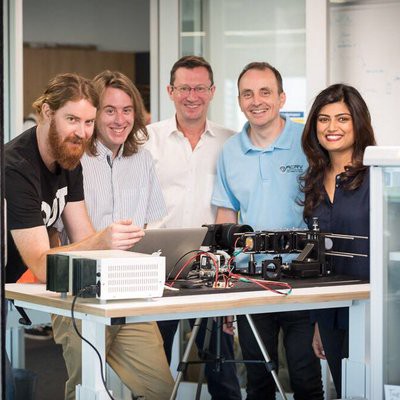The Retinal Plenoptoscope uses Robotic Vision Technology to allow for 3D reconstructions of the retina, and subsequent diagnoses. Before Plenoptoscope joins the Health Horizon Innovation Alley at the World Hospital Congress in October, we spoke to Research Associate Doug Palmer about the future possibilities for Plenoptoscope.

What is your health innovation? What does it aim to do?
Three of the major causes of blindness (glaucoma, macular degeneration and diabetic retinopathy) are treatable if identified early. Whilst all of these conditions can be diagnosed, current ophthalmic imaging techniques are often complex, inaccessible and time consuming. The ‘Retinal Plenoptoscope’ uses a robotic vision technology; light-field imaging, to capture both visual and depth information of the retina allowing 3D reconstructions of the retina and diagnosis of these conditions in one simple test. For the first time, we capture metric measurements of the retinal features that are patient specific. This feature has implications in the diagnosis of cardiovascular risk and dementia.
We aim to to reduce preventable blindness by developing an inexpensive, portable universal retinal imaging platform. Eventually, providing personalised preventative eye care for all.
How is your innovation relevant to hospitals?
The Retinal Plenoptoscope will be accessible and the process of taking retinal images is simplified.
Failure to correctly examine the ocular fundus can have life-threatening consequences particularly in the emergency department. The retinal microvasculature shows important changes that are associated with stroke and dementia. Continued study will allow us to translate large epidemiological studies to the frontlines of clinical practice.
What challenges have you come up against in developing your health innovation? What motivated you to keep going?
Challenges: Legacy in processes, systems and people. The lack of a local supply chain for components.
My motivation: The ability to provide personalised care to help people and communities.

What is one thing the public could do to help your innovation to succeed?
Support and understand the potential of the Retinal Plenoptoscope beyond retinal diagnosis to human well being.
Spread the idea that we can easily avoid preventable loss of vision.
What is the next step for your innovation?
We are seeking seed funding to continue developing the technology and develop a business case for commercialisation.
What are the benefits of developing your innovation in Australia?
We benefit from access to world class research facilities and talent, and a strong and well funded health care system. We hope to benefit Australia by helping build a culture of innovation and excellence in the local medical technology industry, creating jobs and wealth for Australians.
The Retinal Plenoptoscope is one of twelve Australian health innovations being showcased by Health Horizon at the 2018 World Hospital Congress in Brisbane. Find out more about our diverse Innovation Alley cohort here.
Heading to WHC? Be sure to check out the Health Horizon Innovation Alley Stands 65–70. Chat and learn more about our great cohort, search our 1000+ database of Australian innovations and add your own innovations to our growing global database.
